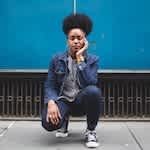Since dropping his debut album, Causers of This, in 2010, Toro y Moi has been making music that sounds like life itself: It's freeform, measured, participatory (but not overbearingly invasive), and balanced. This calm and introspective approach is how Toro, born Chazwick Bundick but now known as Chaz Bear, became the poster child for the chillwave genre.
With that association comes an automatic lockbox that he’s been thrown into. Toro isn't frustrated by his close ties with the genre, though. If anything, he’s appreciative of it, and recognizes how it’s grown with his career. “I definitely see all of the different tangents of chillwave now,” he says in mid-December, while at the Complex office in New York City. “I'm very thankful to be looped into chillwave. I see how, too—but I don't relate to the genre too much. I'm glad it took off and did its thing.”
Chaz’s ability to shake off any preconceived ideas about who and what he should be has been an important skill for the multi-versed musician since the beginning of his career. “I believe in genres,” he says. “I do believe blurring the lines between genres is sort of maybe my favorite thing to do. Especially as a brown guy, it's kinda like you get immediately looped in with stuff. I feel like it's kinda cool to just keep pushing the boundary a little bit.”
Toro ventures outside of the lines, aurally, on a regular basis, so it was only right to speak with him while he actually colored inside the lines. We set him up with colored pencils and a printout of the simplified, peace sign-like artwork he's been using for his new album, Outer Peace. (It drops this Friday, but is streaming early now via NPR.) In addition to talking about some of his favorite doodles, Toro spoke with Complex about the key difference between his new album and his previous project, Boo Boo, his name change, and how he learned to speak up for himself.
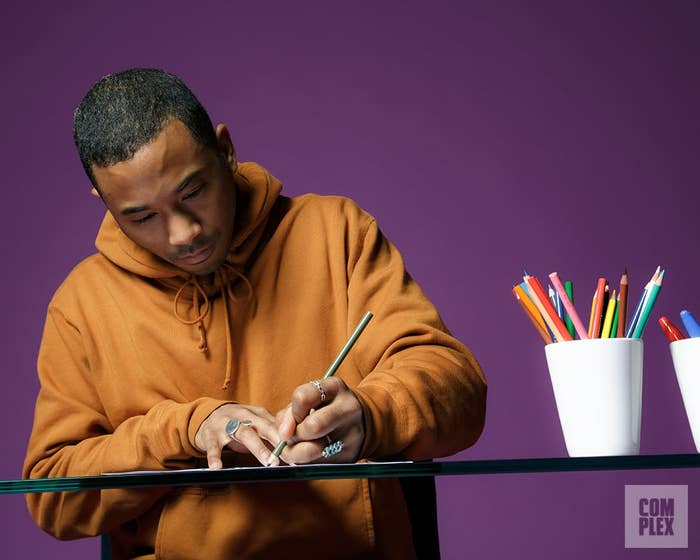
Who are you and what do you do?
My name is Chaz Bear. I play music as Toro y Moi. I'm from South Carolina, moved to the Bay Area seven years ago. Now I'm figuring out this whole thing just like everybody else.
You just introduced yourself as Chaz Bear. Can you tell me the story of your name change?
I got married four years ago and my wife, she's a very strong, independent woman, and she was like, “I'm not changing my name. You change your name.” I was like, all right. That's pretty much it.
Your album is called Outer Peace. What does that mean to you? What does it sound like?
I think “outer peace,” for me, it sounds like... It plays into the playlist culture a little bit. A lot of the songs are really short and I found myself becoming musically A.D.D. I wanted to fit something that I would just listen to or make something that would fit into what I'm listening to. I really don't listen to long songs that much at the moment. I enjoy them but I don't know—I'm definitely into short songs right now. It feels like it has this collage-y, digital, futuristic vibe.
What song do you feel best represents your new album?
I think the song that best represents the album might be “Who I Am.” “Who I Am” is about: “This is Kawasaki, slow it down. This might be my brand new sound...” That's not the words, actually. Those are wrong ‘cause I'm trying to find a colored pencil.[Note: Those lyrics are actually correct.] But yeah, it's pretty much about trying to fight the battle of identity crisis. One of the lines is: “Add an accent to your sound, now I don't know who I am.” We all just speak in whatever accents we choose and I feel like I just wanted to say something about that.
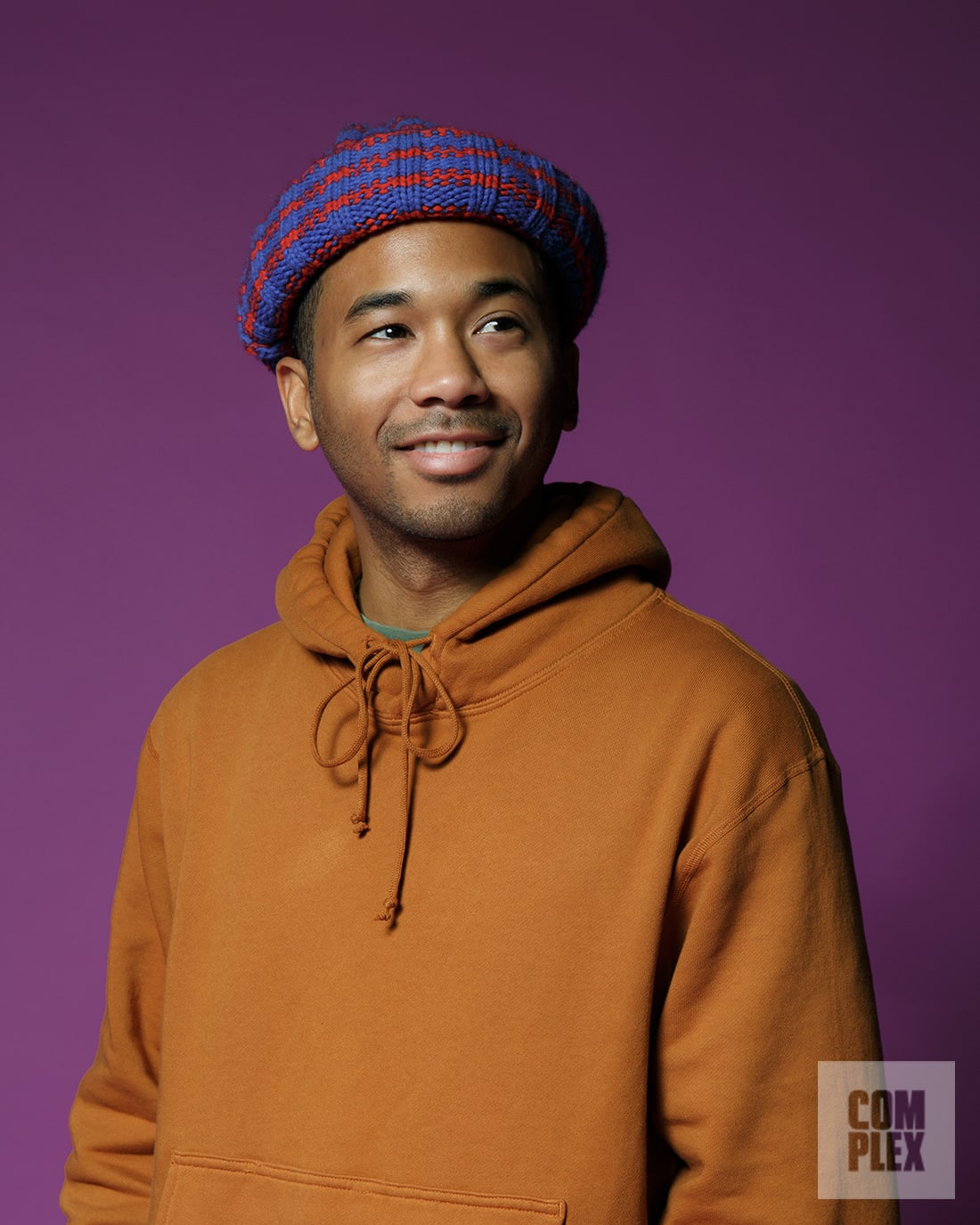
In your opinion, what's the key difference between inner and outer peace?
I named it Outer Peace because I wanted to call to people's attention how we have not only peace within, but when you go outside and you go on a train or in a car, you have to sort of be social. That sucks. Or honestly, another way it's connected is how I wanted to make a car record and I wanted it to be a record that brings pleasure and enjoyment in the car. I think outer peace really is just about having that balance.
Before the last album, your car wreck happened and that was kind of a reset. What was happening with you coming into this album?
Coming into this album, I wanted to make something not as sad and melancholy. I really wanted to just focus on faster BPMs to really switch up the vibe and possibly even the sounds, too. I wanted things to sound like they're coming out of everywhere, just all over the place. It's not as cinematic as Boo Boo or the other stuff. I feel like this is very direct. The song starts the second you put on the track.
I wanted to talk to the people that are on their grind, as opposed to talking about relationships and love.
What was your creative process like for this project?
I found myself struggling with working in my own studio and I just got way too comfortable. Friends and people were always stopping through. I needed to switch up the process somehow because it felt too easy, almost. “I'm gonna knock out a song, whatever.” I packed it up—packed up the studio—and told myself I'm gonna go finish the record somewhere, just to give it a story and get myself motivated in a timeline. I work better under timelines. That's really all I did. I was like, “OK, I need to take this somewhere because it's sounding stagnant.”
Do you remember if there was the last straw that made you think, “I gotta get the hell out of here and do something different”?
Honestly, I told myself I needed a vacation, but I hate vacations because I don't get to work. I was like, “I'll just bring my studio somewhere.” I've never done that and I kinda felt like it's a challenge to just pack up everything and just be in a new environment. I was completely solo, too. That was the big shift. I was like, “I guess I'll just work every time I wake up.”
On that note, what would you say changed most in your life from Boo Boo to Outer Peace?
I think with this record, with Outer Peace, it's less inner issues and it's more talking to someone. Specifically, “Freelance,” I wanted to make something to talk to people with and sort of put out a message for those who are doing the hustle and trying to stay creative—no matter what the job is. I wanted to talk to the people that are on their grind, as opposed to talking about relationships and love. I just wanted to show another side of myself.
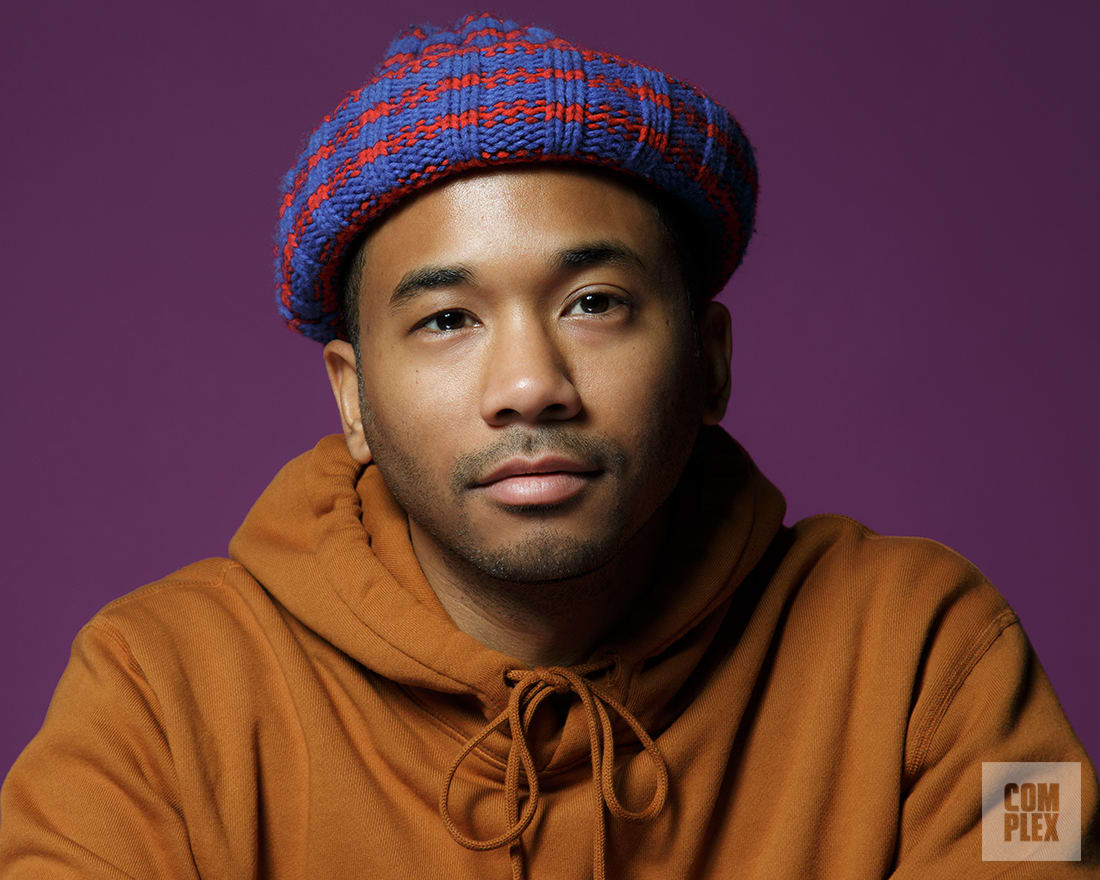
The titles of these two projects couldn't be more different: Boo Boo versus Outer Peace. Is the content of these albums themselves an equal juxtaposition?
Boo Boo and Outer Peace are very different. I feel like the music for Outer Peace is way more almost palatable. I wanted it to be on, and you don't have to pay attention to it. It could just be on without making you sad. I was just like, “Man, I don't wanna make sad music for this record.” I did that. Really, that's the main difference is that I wanted it to be music that was a little bit more cheerful.
You're bringing elements into this album that you typically don't. On “New House,” it sounds like you're doing a rap hook. People like to say that “genre-bending” is your forte. Do you believe in genres?
I believe in genres. Blurring the lines between genres is maybe my favorite thing to do. Especially as a brown guy, it's kinda like you get immediately looped in with stuff and I feel like it's kinda cool to just keep pushing the boundary a little bit.
What went into making “New House,” since it does have that rap hook? It feels different.
“New House” started off as a hip-hop beat, and it was something I never fully just attacked, that sound. I wanted to find my own lane in it and I feel like I'm always more of a melodic person, so the AutoTune worked for me. On top of that, with hip-hop, it's about... There's a goal or a message in the song, and there's always a little bit of ego at play. It's not that you're putting it out there, but you're sort of talking to yourself when you make those songs. It's like, yeah: We're all trying to obtain a lifestyle and we're all sort of trying to just go about it in a respectful way. I felt like the making of that song—it's a new sound for me, and I felt like it fits.
I don't relate to the [chillwave] genre too much.
Do you have a favorite rapper right now?
Right now... Let's see, who's out there? Right now, man, is it weird to say no right now?
No, it's not weird. You don’t have to force it. Do you have an all-time favorite rapper?
All-time? You can't go wrong with Public Enemy, Chuck D.
I know you said you don't really have a favorite rapper but is there anybody on your radar that you might wanna collaborate with next?
I love Aminé. I love Cashier Fresh. Who else is out there? You know, I honestly don't listen to too much rap. I'm just either in my zone—my Chaz World—or I'm listening to ambient music. But I like Boogie. He's chill. I like Kehlani. She's kinda R&B.
What does “Chaz World” sound and feel like?
Man, honestly, I listen to silence a lot. I'm always in my head, and I'm like, “I can't handle music right now.” Or I'm listening to ambient stuff. And I'm always listening to my own stuff, just ‘cause I'm constantly critiquing it, so Chaz World is just unfinished Toro, or other works.
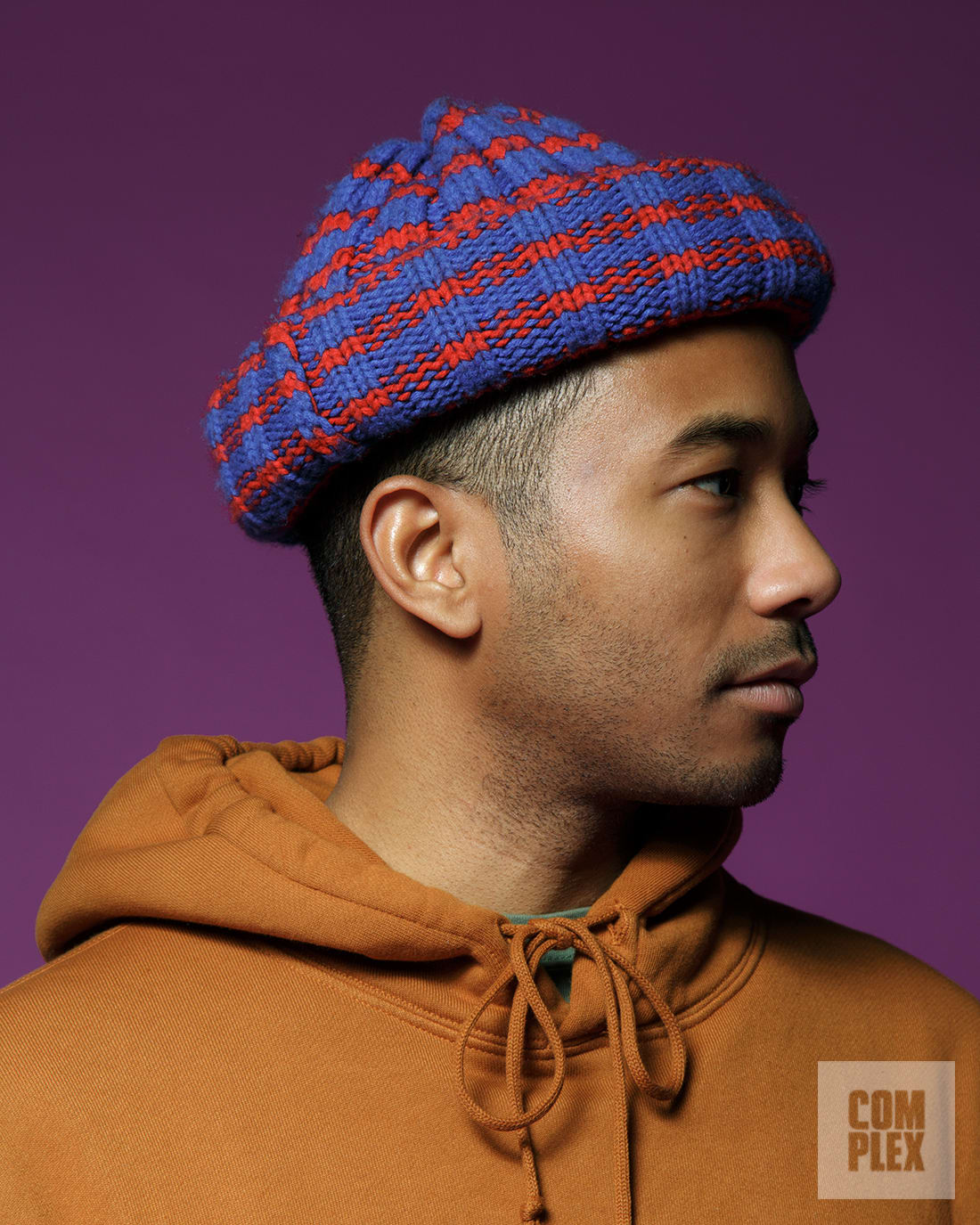
You were at the forefront of this "chillwave" movement when you first started. How do you feel about that term now?
I definitely see all of the different tangents of chillwave now, and I'm very thankful to be looped into chillwave. But I don't relate to the genre too much. I'm glad it took off and did its thing. I feel like, if anything, I'm just seeing where all I can explore in the pop world, primarily.
Have you ever wanted to see yourself perform?
I have, but not in a crazy obsessed way. More like a game tape kind of way. I wanna step up my own performance. When I'm on stage, I don't really say stuff. It's not that I'm shy. It's more like, I don't know what to say. I'll say what's up to the crowd, but other than that, I just wanna get to the music.
You mentioned the phrase “game tape.” Does that mean that you watch your own performances?
Yeah. I'll snoop around on Instagram or Youtube and see how stuff sounds, or how I'm singing, or what I'm wearing. But I'm my own worst critic. I'm constantly like, “No, this is corny. This is cliché, this is cheesy.”
I aspire to go where Solange has taken the concert experience.
How do you move past that?
I have to show it to friends at that point. I'm like, “Tell me, is this stupid?”
How would you describe your live show to someone who's never seen you perform before?
I aspire to go where Solange has taken the concert experience. I'm thinking of bands—that's why she comes to mind—but also, her stage presentation is a beautiful thing. Honestly. [My show] is definitely more of a performance; an almost artistic performance, hence why I don't talk too much. I don't wanna break the [fourth] wall. I'm kinda just in the zone and it's a pretty, I'd say, moody show. It's not a show you go to to get turnt up, but it's dancey.
“Dancey” is very accurate. DJing versus performing: Which one would you choose?
You know, I love DJing at the moment. Performing for me has become more of a... A lot of things are in motion. Lights, sound, four other band members, wireless setups, and it's just kinda like “Whoa, whoa.” You can never really just be with the crowd. A DJ set, though, you straight-up read the crowd. And I'm like, “All right, they want more.” Whatever. I think just playing music—nothing beats playing music on instruments. So yeah, I'd say playing a show, I like more.
What is your personal favorite song on the record?
My personal favorite is “50/50.” I really like that song. Mostly ‘cause it's a first for me where I've really just gone full on pop/R&B. But also, it's one of the first songs where I had features from other artists. Kelly Zutrau is on there, from Wet, sort of sampled in the background. Then, it was also produced with Instupendo, who's from Pennsylvania. I don't know, I never had collaborative tracks like that on my records, and I feel like that's probably one of my favorite tracks.
We talked about “Freelance” a little bit earlier, and you have a very, very tight video for that. I feel like your videos are always on some other shit. How do you come up with the video treatments?
It was funny. The “Freelance” video came to mind because I told my director, Harry [Israelson], I wanna do an album cover that's taken from a video, 'cause I've never done that and I always thought it was smart to package it all visually. That was the main premise. I whipped up some references I had. At first, the cover was really cheesy—like those Christmas records of dudes in front of organs and stuff. I wanted to make it kitschy, like cheesy, poking fun at myself. He's like, “No, you should make a serious-looking one.” He had this idea to get the seamless wall and we just turned the photo shoot for the record cover into the music video. That's actually my wife taking the photo [in the video]. We brought in friends and family and sort of just had fun with it for like two minutes, however long.
What is your favorite thing to do, at this very moment, that is not music related?
Oh, man. I like hanging out with dogs. I have a dog. But also, I'm that guy that'll go check out a dog park without the dog, just 'cause I'm bored. I still like to go thrifting, I still like to dig for music. I also like to draw.
Clearly. [Laughs]. What kind of dog do you have?
He's an 11-year-old Basenji mix, and Basenjis are cool. They're like those African dingo dogs that are in statues and stuff. He's sort of my shepherd, my guider. I'm just watching him. He's always telling me to go outside, so I listen to him.
In what ways would you say your artistic approach has changed in the past year?
Probably to treat it more like a professional job. I wake up and go to the studio everyday at 10 a.m., and almost don't leave until 14 hours later. That's not very professional to stay all day, but I don't know. I do like to get the job done. Once you have a studio, you almost treat it like work or a business and you just make sure… It's hard for it to not escape your mind, that you're making a product. You're making something for the masses and it can't be so esoteric. So if I'm making some random shit, that's just for fun and I'm not trying to live off it, then that's when it's just whatever. But I definitely like to approach things professionally.
We're in 2019. What was your resolution coming into this year?
My resolution was to be better at communicating my emotions. I'm kind of just a mumbler, introvert, extrovert, but I don't know. I feel like I just need to talk more. I speak up—I definitely speak up—I just don't talk much. It can put off a weird vibe.
What's the difference between speaking up and talking?
One requires thinking. Speaking up sort of implies this hesitation, like something's holding you back. I wanna do that more. I'm the kind of person who's gonna think of something and I'm like, “I should've said that, I should've told them,” but now I'll be like, “I'm not wearing that!” [Laughs].
